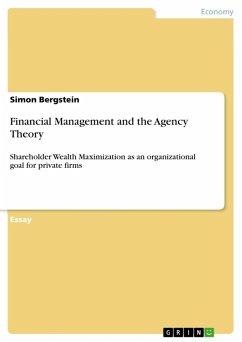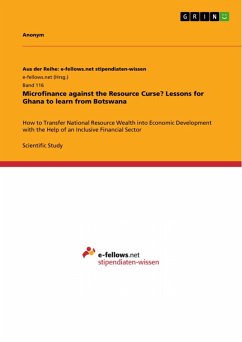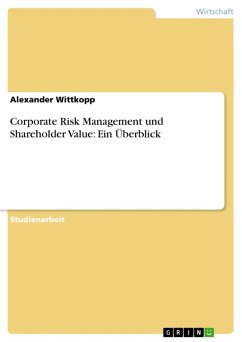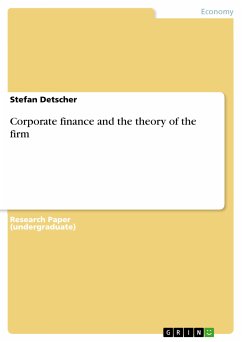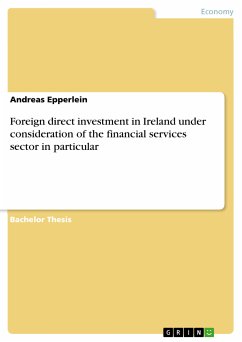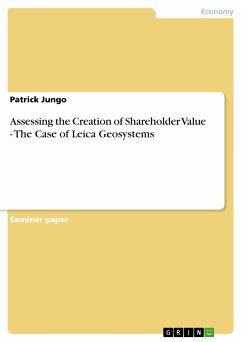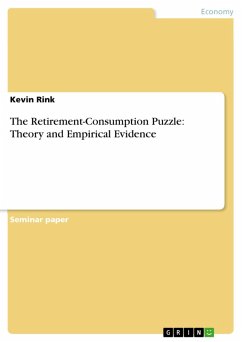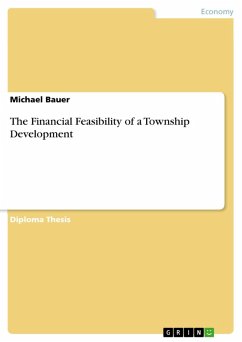Essay from the year 2013 in the subject Business economics - Investment and Finance, grade: A15 bzw. 1,0, University of New South Wales, Sydney, language: English, abstract: In Financial Management it¿s generally assumed that the goal of a private firm is shareholder wealth maximization respectively maximizing shareholder value (ACCA BPP, 2012, p. 5). This assumption correspond with a recent statement of Philip Clarke (2013) - Chief Executive Officer of Tesco who declared that '[e]verything [they] are doing reflects [their] determination to deliver shareholder value'. The question arises if shareholder wealth maximization is an appropriate goal since there are other individuals besides the shareholders that are affected by the activities of a firm. Another point is that managers often do not act in shareholders best interest in order to maximize their own utility. This conflict of interest is described by the agency theory. Furthermore the agency relationship complicates the achievement of the goal of shareholder wealth maximization (Van Horne and Wachowicz, 2009, p.5). Recently shareholders of the former Yellow Pages publisher Hibu blame the management not to act in their best interest because of both a lack of information provided by directors and by restructuring the company with a debt-for-equity swap that wipes shareholders out. As a consequence of Hibu's oppressive debt mountain the debt-for-equity swap enables major lenders to take control over the company (Spanier, 2013). In this context the concept of cost of capital and its calculation provides an approach to the costs of financing decision. (McLaney, 2011,p.296). Since the debt-for-equity swap restructures Hibüs balance sheet it is of crucial importance to examine the sources of capital that are discussed in this context in order to evaluate the reasonableness of the debt-for-equity swap from a economical perspective. Section 1 of this assignment focuses on the characteristics of shareholders' wealth maximization as an organizational goal of management and discusses its link with the Agency Theory. Section 2 gives an insight into the concept and the calculation of cost of capital. The 3rd section critically evaluates the different sources of capital discussed in the previous section. The last section summarizes the main points of the assignment and provides a conclusion.
Dieser Download kann aus rechtlichen Gründen nur mit Rechnungsadresse in A, B, BG, CY, CZ, D, DK, EW, E, FIN, F, GR, HR, H, IRL, I, LT, L, LR, M, NL, PL, P, R, S, SLO, SK ausgeliefert werden.

